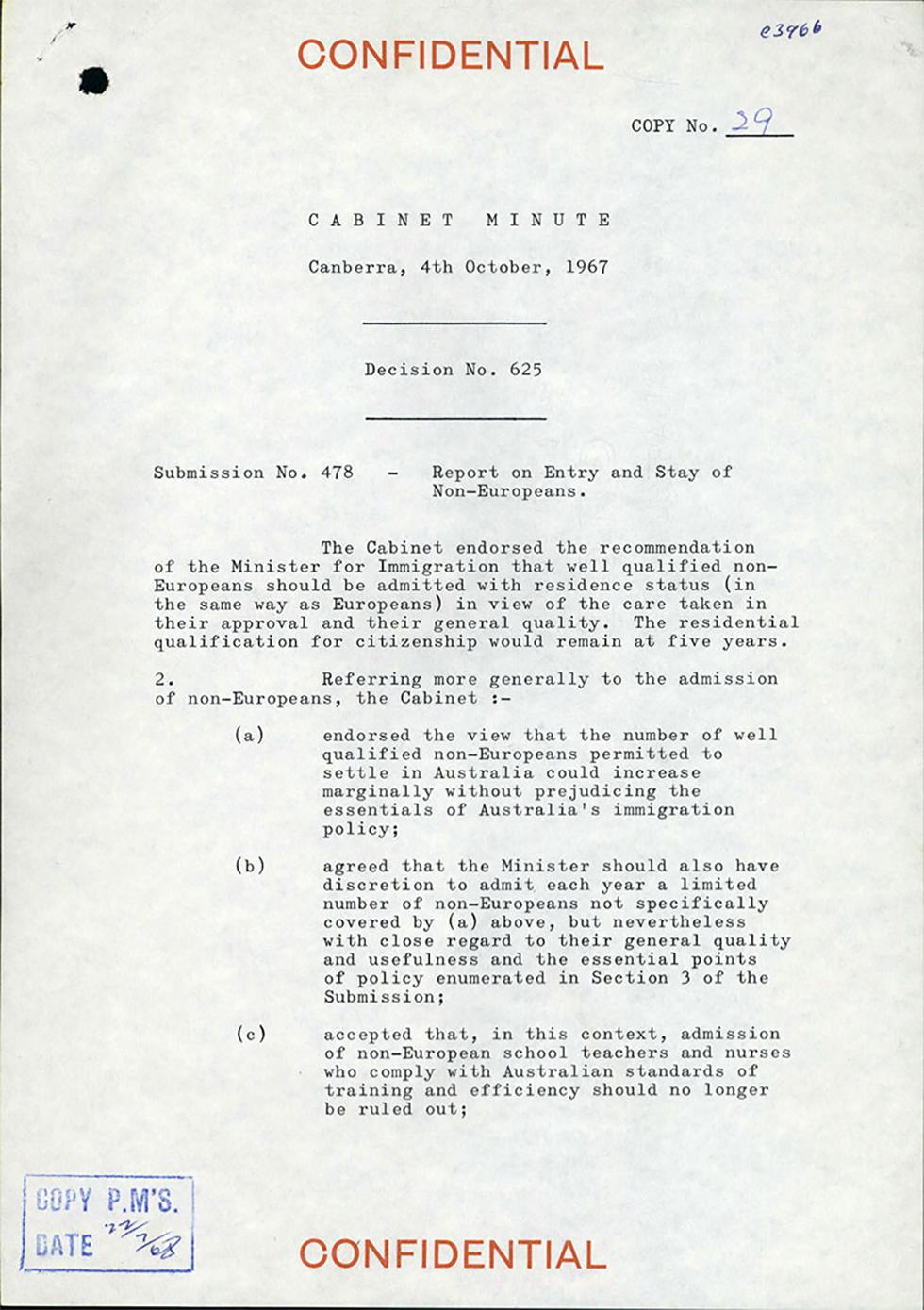
A confidential cabinet minute, documenting an endorsement to admit residence status to non-European migrants.
Aboriginal and Torres Strait Islander people should be aware that the National Archives' website and collection contain the names, images and voices of people who have died.
Some records include terms and views that are not appropriate today. They reflect the period in which they were created and are not the views of the National Archives.


A confidential cabinet minute, documenting an endorsement to admit residence status to non-European migrants.
Confidential
Copy No 29
Cabinet Minute
Canberra, 4th October, 1967
Decision No. 625
Submission No. 478 – Report on Entry and Stay of Non-Europeans.
The Cabinet endorsed the recommendation of the Minister for Immigration that well qualified non-Europeans should be admitted with residence status (in the same way as Europeans) in view of the care taken in their approval and their general quality. The residential qualification for citizenship would remain at five years.
2. Referring more generally to the admission of non-Europeans, the Cabinet:
a. endorsed the view that the number of well qualified non-Europeans permitted to settle in Australia could increase marginally without prejudicing the essentials of Australia's immigration policy;
b. agreed that the Minister should also have discretion to admit each year a limited number of non-Europeans not specifically covered by (a) above, but nevertheless with close regard to their general quality and usefulness and the essential points of policy enumerated in Section 3 of the Submission;
c. accepted that, in this context, admission of non-European school teachers and nurses who comply with Australian standards of training and efficiency should no longer be ruled out;
Learn how to interpret primary sources, use our collection and more.
